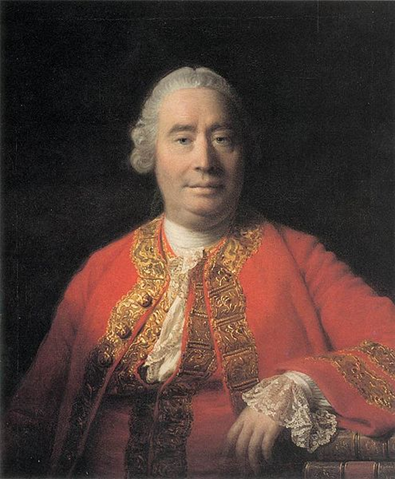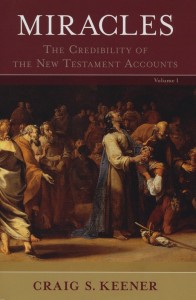Response to hard cessationist critic, by Craig Keener

David Hume (1711-1776)
Image: Wikimedia Commons
In history, journalism, sociology and elsewhere, eyewitness reports are a form of evidence, although they must be evaluated. Some reports are unreliable and some remain uncertain, but there are many cases where reliable eyewitnesses with something to lose do report miracles, all around the world. Sometimes the eyewitnesses have been doctors or others qualified to confirm them. Hume in principle admitted such evidence, though in practice he would have regarded as unreliable any witness who claimed something contrary to his belief about “uniform human experience” against miracles. Interestingly, many hard cessationists value many aspects of the church fathers’ theology as late as Augustine, yet reject their eyewitness reports of miracles, and their reports from contemporary eyewitnesses of dramatic miracles such as raisings and cures of blindness.
Some dramatic miracles occur
Now on the next point, I may be reading into what the critic is saying (and we may differ in precisely how we differentiate the expressions “moderate cessationist” from “hard cessationist”). Giving examples of healings of cancer (which can go into remission) and colds without the presence of a miracle worker does not mean that the critic has claimed that God does not heal anything else or that he never heals when someone is praying for the person.
So I will here try to answer the possible objection, but I am attributing this objection to an imaginary critic rather than to the person who wrote, in case the person does not go this far. As for a hard cessationist argument that events like people being raised from the dead and nature miracles cannot be proven: you are right if you mean they can never be proven to the satisfaction of someone who denies them. Someone who denies their possibility can raise the bar of evidence so high that no one could ever answer it. The same is true for the attribution to God of any cure, medical or nonmedical.
 Would you believe in a raising if you witnessed it yourself? Or if your spouse or close friend witnessed it? Presumably not, since you dismiss arguments from extrabiblical experience. Thus you will not accept the large number of eyewitness claims for this from credible eyewitnesses, witnesses that I interviewed and many of whom I know. Yet in this respect you prove more skeptical than Hume, who in principle (though probably not much more than that) would have allowed for raisings and the like if there were credible witnesses who met his standards. Many of these eyewitnesses meet Hume’s stated standards (such as being people who have much to lose from lying), and yet you do not accept them. (I will not assume that you are simply unaware of them, since I would not think that you would deny the existence of such claims without first familiarizing yourself with some accounts I report in the book. I also am confident that you would not share the one basis on which Hume would have nevertheless readily rejected many of these witnesses, namely that many are nonwhite, a rejection that fit Hume’s pattern of overt racism elsewhere.)
Would you believe in a raising if you witnessed it yourself? Or if your spouse or close friend witnessed it? Presumably not, since you dismiss arguments from extrabiblical experience. Thus you will not accept the large number of eyewitness claims for this from credible eyewitnesses, witnesses that I interviewed and many of whom I know. Yet in this respect you prove more skeptical than Hume, who in principle (though probably not much more than that) would have allowed for raisings and the like if there were credible witnesses who met his standards. Many of these eyewitnesses meet Hume’s stated standards (such as being people who have much to lose from lying), and yet you do not accept them. (I will not assume that you are simply unaware of them, since I would not think that you would deny the existence of such claims without first familiarizing yourself with some accounts I report in the book. I also am confident that you would not share the one basis on which Hume would have nevertheless readily rejected many of these witnesses, namely that many are nonwhite, a rejection that fit Hume’s pattern of overt racism elsewhere.)
Category: Spirit, Summer 2014


